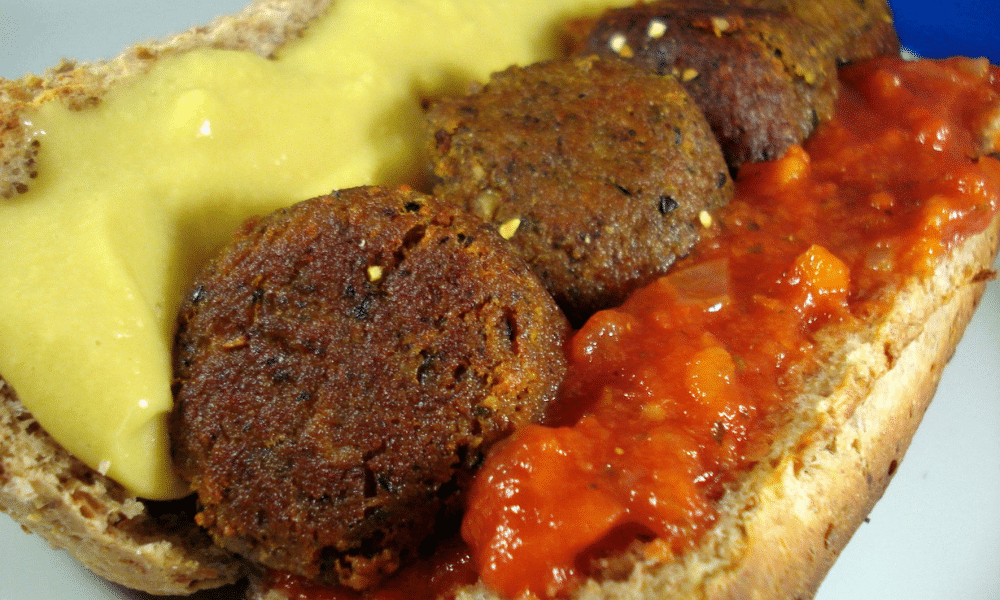The Skinny on Fatty Acids for Vegetarians
Hello everybody! This is Christine, and while Matt was busy running his 50-miler, I attended an event in Philadelphia hosted by New Harvest to educate health and food bloggers about their new Vegetarian Fatty Acid Supplement. New Harvest took care of the expenses for my trip, but my opinions are my own. I also double-checked the facts they provided in their presentation before passing any information on to you.
New Harvest Vegetarian Fatty Acid Supplement is a yeast-derived form of the long chain fatty acid EPA. By now you probably have figured out that essential fatty acids are, well, essential. But if you’re like me, the knowledge ends at the vague idea of omega-3’s being “good” and that’s about it.
Not Just Heart-Hype
Fatty acids are strongly associated with heart health; the higher the intake, the lower the number of coronary events. In fact, a low omega-3 index in cells is now being considered a risk factor itself for cardiovascular disease.
Omega-3’s are associated with general life longevity too, but EPAs are the only omega-3 fatty acid that have been proven helpful to the heart. DHA is great for brain health, but can actually raise bad cholesterol.
The American Heart Association recommends 500 mg of omega-3’s per day. If you are counting on flaxseed and chia to provide you with the recommended amount of omega-3’s, you may be in for a surprise.
Does your plant-based diet need an omega-3 supplement?
Answer: probably. There are a handful of vegan supplements that just about all of us need to consider, and there are a few (one of which is omega-3’s) that just some vegans need (a blood test can help you determine whether you do or not).
Plant sources contain the short chain fatty acid ALA, which some people can turn into EPA and DHA. Unfortunately, for a lot of us, only a sorry rate of 5-15% actually converts into the useful long chain kind. Keep that in mind before splurging on ALA omega-3 fortified Doritos.
But where did those daily recommended amounts come from anyway? Some say that the ratio of omega-6’s to omega-3’s is just as important as the absolute amount; therefore lowering the intake of omega-6’s could suffice in place of an omega-3 supplement. Maybe this could work for the average American who consumes omega-6’s and omega-3’s in a 10:1 ratio when the ideal is 4:1, but there may not be enough to cut from a healthy vegetarian diet.
Why not just bite the bullet and take a fish oil pill?
I know more than a few vegans who in the past have been instructed by their doctors to take a fish oil supplement. Even if you aren’t philosophically opposed to eating fish or deterred by the dreaded “fishy burp,” it’s important to realize that making fish oil supplements is big business.
With demand so high, environmental practices can take a backseat and leave oceans over-harvested and ecosystems in shambles. The New Harvest supplement is made from yeast so it is sustainable, unlike those two servings of fatty fish per week for the rest of the population.
Environmental Give and Take
The New Harvest EPA oil is currently extracted from the yeast by a chemical solvent called hexane, but I am told that they are changing the process by next year. Hexane is a cheap and efficient way of extracting oils, but is also classified as a hazardous air pollutant. I am looking forward to hearing how they change the process since hexane is notorious for leaking into the atmosphere. Unless you exclusively buy organic expeller-pressed oils, you probably already have many hexane-extracted oils in your kitchen.
Prick it to Prove it!
So where does that leave me and my daily flax and berry smoothie? I’m not sure yet, but I’ll keep you updated. New Harvest provided me with a prick test to analyze my omega-3 index both before and after taking their supplement for 6 weeks. I’m pretty excited to get started; it think it says a lot that a company is willing to hand a blogger something so quantifiable to back up their product. So here I am being a big baby with the first round of the test. At the end of six weeks we can compare how the supplement affected my omega-3 index.





